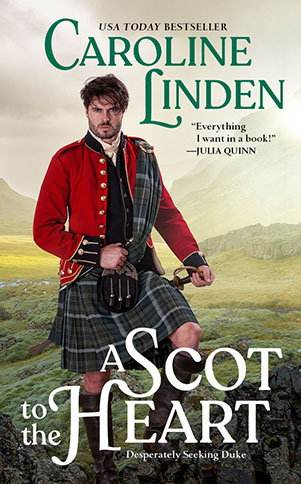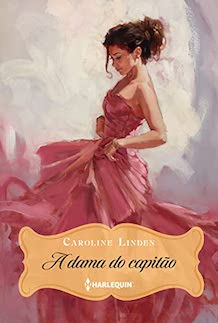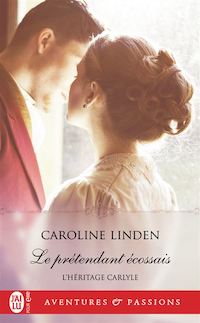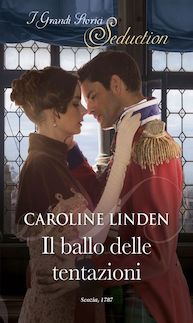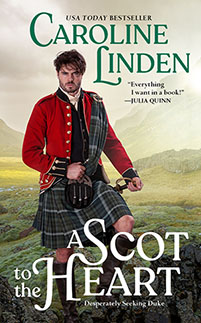 1787
1787
Fort George
Ardersier, Scotland
The broken wheel was the last straw.
The company had been out for a fortnight on the most ignominious assignment, repairing roads in an incessant misty drizzle. They were within two miles of Fort George’s warm, dry beds and hot food when a wheel of the equipment wagon found an overlooked hole and tilted with a groan and a sickening snap of spokes.
Efforts to raise it were in vain. Resigned, the men and officers unloaded the shovels and pickaxes and other tools onto their own backs and began the weary trudge to Ardersier.
When they reached the long narrow bridge into the fort, an eternity later, there was an outburst of exclamations—relief, pain, profanity toward the army for the road detail and against God for the fecking rain. Their captain, leading his tool-laden horse through mud that covered his ankles, his sodden sash draped over his head, silently agreed, and vowed he would ask the colonel for three days’ leave for the men. On days like this, he hated the army, too.
At very long last, after unloading the tools, dismissing his men, and delivering his horse to the stables, he turned toward his own lodging. As a captain, he had cramped quarters in one of the long buildings facing the Firth of Moray—not that anyone could see the firth today.
“Welcome back, sir,” said MacKinnon as he let himself into the two small rooms that were home. “The colonel’s wanting you.”
Dripping wet, slathered in mud, half-starved and tired almost unto unconsciousness, Andrew St. James just stood in the doorway, his hand still on the latch. “What—now?” he asked hopelessly.
His man nodded. “Aye, Captain. Posthaste, he said.”
Bloody saints, I hate the army, Drew thought.
“Damn it.” He unbuckled his sword belt with stiff fingers. MacKinnon passed him a towel to mop his face as he stripped off his wet clothing.
He longed for a hot bath and shave, to say nothing of putting off his uniform for a comfortable banyan, but he’d learnt the hard way that the colonel’s impatience overrode his attention to matters of dress, so he pulled on fresh garments. MacKinnon ran a hasty brush over his jacket, handed him his bonnet, and gave a crisp nod. “I hope it’s good news, Captain.”
He gave a grim nod. That would run counter to his luck of late. “Aye, let’s hope.”
He didn’t expect it would be. These summonses rarely were.
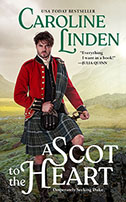 He strode through the open square, holding his cloak close around him as he went. From one barracks drifted the sounds of a piper and laughter of men at ease. The scent of pipe smoke and roast mutton followed him across the quadrangle, blackening his mood even more. He ought to be sitting down to his own dinner instead of dancing attendance on the querulous colonel. With more force than necessary, he banged on the door of the colonel’s house.
He strode through the open square, holding his cloak close around him as he went. From one barracks drifted the sounds of a piper and laughter of men at ease. The scent of pipe smoke and roast mutton followed him across the quadrangle, blackening his mood even more. He ought to be sitting down to his own dinner instead of dancing attendance on the querulous colonel. With more force than necessary, he banged on the door of the colonel’s house.
Colonel Fitzwilliam enjoyed superior housing and dining. The aroma of roast beef and fresh bread hit like a punch when the servant let him in, setting his temper to simmering. Whatever Fitzwilliam wanted to see him about had better be damned important, he thought as he waited in the office.
The colonel came in several minutes later, a scowl on his florid face and a napkin still tucked across his ample abdomen. “St. James,” he said irritably. “What took you so long?”
Andrew kept his gaze on the swords hanging above the mantel. The clink of silver on china and the light lilt of Mrs. Fitzwilliam’s laugh reached his ears. A dinner party. Probably with syllabub. His stomach growled resentfully. “We’ve only just returned from detail, sir. The equipment wagon broke a wheel.”
Fitzwilliam scoffed. “Ought to have hurried back. There’s a letter for you, and I was told to deliver it personally and immediately.”
Drew glanced at him, startled. “From whom?” His muscles knotted. It must be bad news from home. Who else would write to him that urgently?
“From London,” said Fitzwilliam, unlocking the top drawer of his desk and rummaging inside. “A prissy solicitor for the Duke of Carlyle.”
The knot of worry dissolved. He frowned in amazed astonishment. “Carlyle!”
“You’re acquainted with him?”
“No, sir,” he said slowly. “He’s a distant cousin—very distant. I’ve never met the duke.”
The colonel grunted and thrust out the letter. “The solicitor said I was to put it straight into your hands, and only your hands.”
He took the letter with a brief bow and slid it inside his coat. On no account was he going to read it in front of Fusty Fitzwilliam. “Thank you, sir. Is that all?”
The colonel pursed his lips, displeased. “What does it say?”
He managed a tight smile. “I shall read it later, after I’ve had dinner. I can’t imagine it’s anything significant. My family has had naught to do with Carlyle since my grandfather’s day.”
“You’ll have to tell me what it says,” retorted Fitzwilliam, his face growing ruddier. “I received a letter with it from Sir George Yonge himself, with orders to grant you leave from your duties as requested by that missive there.” He jerked his head toward the pocket where Drew had stowed it.
“Ah,” he said after a startled moment. “I’ll be sure to do that, sir.”
Fitzwilliam glowered at him. “Do, Captain.”
 Dismissed, he bowed and left, barely remembering to fling his cloak over his head in time to avoid being drenched a second time.
Dismissed, he bowed and left, barely remembering to fling his cloak over his head in time to avoid being drenched a second time.
As he ran back across the square, though, his mind raced ahead, hundreds of miles away to Carlyle Castle. He’d never been there and never received any communication from the duke, either. What on earth could the Carlyle solicitor want from him?
By the time he reached his lodgings again, he had begun to wonder, even hope, if there mightn’t be some legacy, either newly left to him by an obscure relative or recently discovered by the solicitor. There had been no word from the St. Jameses of Carlyle Castle in the dozen years and more since his father and grandfather died. His mother always said she wasn’t surprised, since they hadn’t cared when either was alive.
Not that Drew would refuse anything from them now. On the contrary, he would accept even a small inheritance with gratitude—and alacrity.
It was the letter from the secretary at war that unsettled him. Why would Sir George Yonge care that he was granted leave to accept a legacy? Why would Carlyle’s solicitor ask the head of the army to intervene?
He tore open the letter as soon as he gained the shelter of his lodging. MacKinnon had laid out a generous dinner which normally would have driven all other thoughts from his mind, especially after a day like this one. But tonight he stood just inside his door, ignoring the water dripping off him, and read the letter from his distant cousin’s solicitor.
“Trouble, sir?” ventured MacKinnon after several minutes.
He raised stunned eyes. “Bloody hell,” he whispered.
A fortnight later he found himself five hundred miles away cantering up a long winding road to the castle. It was a monumental structure of weathered gray stone, with crenelated towers and a drawbridge through a stone arch that had certainly once held a portcullis—if it didn’t still hold one. It was not unlike some of the fortresses to which he’d been posted during his years of army life, and he wouldn’t have been surprised to see a regiment come marching crisply around the corner. Never would he have guessed that this was a home.
In the courtyard he flung himself off his horse; he was late. He’d been requested to present himself today, but he’d been delayed by everything from bad weather to a broken saddle girth.
The butler was waiting for him, and he was shown immediately to a room. A servant brought a tray of breakfast, sausages steaming gently in the tureen. Famished, Drew snatched as many bites as he could, trying to set his clothing to rights as a servant silently gave his coat a swift brushing.
“Her Grace requests your presence,” said the butler, far too soon.
He crammed a roll into his mouth, washed it down with a gulp of coffee, and strode after the man.
Unaccountably his hands shook as he checked the buttons of his coat. Mr. Edwards, the attorney, had charged him to be prompt and here he was, darting in at the last moment, covered in dust and bleary-eyed from the long trip from Inverness. He dared to hope it was a generous legacy.
 The room he was shown into was ornate beyond anything he’d ever seen. Not even the Duke of Hamilton’s house, which he’d viewed once with his family, held a candle to this. The walls were covered in burgundy damask, hung with a dazzling selection of artwork. The carpet beneath his boots was thick and richly patterned. Tall, mullioned windows looked out over an endless stretch of verdant lawn. It was fit for royalty.
The room he was shown into was ornate beyond anything he’d ever seen. Not even the Duke of Hamilton’s house, which he’d viewed once with his family, held a candle to this. The walls were covered in burgundy damask, hung with a dazzling selection of artwork. The carpet beneath his boots was thick and richly patterned. Tall, mullioned windows looked out over an endless stretch of verdant lawn. It was fit for royalty.
The woman sitting on the ornate chair, though, was no queen but a duchess. Drew had managed to learn that much: Sophia Marie St. James, Duchess of Carlyle. She was short and plump, wearing a black silk gown that surely cost more than a captain made in a year, and on her finger glittered a ruby the size of an acorn.
On guard, he took a seat. Another fellow, already seated, cast him an assessing glance. Handsome, lithe, elegantly posed in his chair. But his velvet coat was worn at the elbows and cuffs, and there was something calculating in his eyes. Drew gave a curt nod of greeting, and the fellow returned it with a languid smile.
“Good morning,” said the duchess briskly. “I trust your journeys were without incident.”
“Yes, Your Grace,” he said.
“It was perfectly delightful,” said the other fellow, managing to convey the exact opposite meaning. Drew wondered who he was.
“Excellent,” said the duchess, eyeing him coolly. “No doubt you wonder why I summoned you to Carlyle. Mr. Edwards will explain.”
He had barely noticed the man, clad as he was in black and sitting behind Her Grace. Edwards was the solicitor who’d written to him and got him special leave from the army.
“On the fourteenth of April last,” the solicitor said, “Lord Stephen St. James, youngest brother of His Grace the Duke of Carlyle, fell ill and died.”
“I offer my deepest sympathies, madam,” Drew murmured.
“Thank you, Captain,” said the duchess. “That is very kind of you.”
“Unfortunately, Lord Stephen was His Grace’s nearest living heir,” Mr. Edwards went on. “Carlyle himself has no children or wife.”
He had spent so much time thinking about legacies and who might leave him something. It was literally the only reason he could find to explain why he had been summoned to Carlyle Castle with all possible speed from Inverness.
His great-grandfather had been the third Duke of Carlyle. His grandfather, a younger son, had fallen out with his brother, the fourth duke, and been banished from the family estates. Drew’s father had always said that was more blessing than curse, and no one had ever attempted mending the breach. It was as if their family had come into being with his grandfather—appropriately named Lord Adam—and no previous generations existed.
But they had. And Drew, like his father before him, was an only son. Like a thunderclap from above, he realized why he was here.
 He glanced swiftly at the roguish fellow beside him, wondering how closely related they were. That must be another St. James cousin. He knew virtually nothing of the family beyond his grandparents.
He glanced swiftly at the roguish fellow beside him, wondering how closely related they were. That must be another St. James cousin. He knew virtually nothing of the family beyond his grandparents.
“Lord Stephen has also left no wife or children,” announced the duchess. The sunlight winked on her ruby ring. “In their absence, it appears the dukedom will pass upon my son’s death to one of his cousins.” She gave both of them pointed looks. “In short, to one of you.”
By God, it was a legacy beyond his dreams. “That is most unexpected news, Your Grace,” he said, trying hard to keep calm. “May I inquire how…?”
“Certainly. Mr. St. James”— she flicked a glance at the other fellow—“is the great-great-grandson of the second duke. And you, Captain, are the great-grandson of the third duke.”
Drew forced down the urge to shout aloud. Hold fast, he told himself. “This is quite shocking news, ma’am. But is there no one—?”
The solicitor drew breath, but before he could speak, the duchess did. “No,” she said shortly, glaring at the lawyer. “There is no one nearer.”
No one nearer. And the fellow beside him had a lower claim than his own, if his hasty mental logic was true.
Mr. Edwards was speaking again. “As you may not know, His Grace the duke suffered a tragic injury many years ago.” Drew had not known that, but if the duke were a hale and hearty fellow he would surely find a bride and commence trying to sire an heir, rather than drag in distant and heretofore unwanted cousins from the outermost reaches of Scotland. “It has rendered him unable to take a wife and father direct heirs, which means there is no chance either of you will be supplanted in the chain of succession.” Mr. Edwards laid out a large sheet of paper. “I have taken the liberty of documenting the family here, as you see.”
Like a pair of puppets worked by the same strings, Drew and the man beside him leaned forward to study it.
“This documentation will be invaluable when the time comes to assert a claim,” said the solicitor, adding with a hint of warning, “particularly as neither of you is a direct descendant of the current or previous holder of the title.”
His eyes raced over the lineage. There was his name, and his father’s and grandfather’s…leading back to the third duke. Precious few other names fell in between.
Great God above, he was heir presumptive to the Duke of Carlyle.
“I see this has been something of a surprise to you,” said the duchess as both men sat in stunned silence. “It has been no less alarming to me.”
The cousin beside him, who had been fairly quiet, stirred. “I wouldn’t precisely call it alarming,” he drawled in cynical amusement. “A surprise… I’ll grant.”
Drew frowned. What made the man react with insolence to such indisputably good news? Better for himself, he acknowledged, but since he had neither son nor brother, this man must be the next in line. His heir.
The duchess gave the impertinent fellow a filthy glare. “The rules of inheritance are firm. The title and entailed lands must descend through the male St. James line, and they will. One of you will be the next duke—Captain St. James, most likely”—she glanced at him—“or Mr. St. James, in the event tragedy befalls the captain.”
 I’m resigning my commission, Drew thought. On the morrow. Only an idiot would stay in the army and risk dying of dysentery now.
I’m resigning my commission, Drew thought. On the morrow. Only an idiot would stay in the army and risk dying of dysentery now.
“There is a considerable fortune attached to the estate, naturally,” the duchess continued. “It is an enormous responsibility, and neither of you has the slightest preparation to assume it. I have had both of you investigated.” Her expression was distinctly unimpressed as her gaze swept over them. “The results were hardly reassuring, but we must deal with what we must. Neither of you has taken a wife yet.”
He snapped to alertness. “No, ma’am.”
“Not one of my own,” murmured the roguish cousin with a hint of a wicked smile.
Blessed saints. Drew glared at the man. What was wrong with him? The duchess’s expression turned frigid, although the solicitor seemed to be biting back a smirk as he shuffled his papers.
“Nor have you taken any pains toward respectability, sir,” Her Grace snapped at him. “That is what troubles me, and that is why I sent for you. The Duke of Carlyle wields great power and must do so with dignity and decorum.”
“It is an awesome responsibility,” Drew said quickly before his cousin could say something even ruder. “I hope I may become worthy of it.”
The duchess inclined her head his way. “I expect it of you, Captain.” She paused before adding sourly, “And of you, Mr. St. James.”
Drew would swear the man grinned.
“I understand this may be a difficult request,” the duchess said. “I am prepared to help. Mr. Edwards will disburse to each of you five hundred pounds immediately. I trust you will use it wisely, and return in six months’ time more sober, refined gentlemen. If I am satisfied with your progress, I shall grant a further sum of one thousand five hundred pounds per year, to continue as long as you remain respectable.”
His heart thumped hard. Five hundred pounds! With fifteen hundred to follow. It was a bloody fortune.
Mr. St. James asked another question, which he barely heard. All he could think of was the money and what it would mean to his family. They were getting by in Edinburgh, but now he could see them comfortably settled. He could give his sisters dowries—two hundred pounds or more, each. Agnes with her intelligence and warm heart, Winnie with her humor and beauty, and Bella with her charm and high spirits… all three would surely find good matches. And his mother deserved to have proper servants again, and not have to work in the shop in Shakespeare Square—
He brought himself up short. Edinburgh? He could bring his sisters to London, for a real Season. Gowns from Paris, a carriage of their own, entrée to all the most fashionable and intelligent society they wanted. They would be the family of a duke-in-waiting.
Did that make his mother and sisters ladies? How thrilled Winnie would be. He must ask.
The duchess and Mr. St. James had been sparring as he sat woolgathering. Mr. St. James must have offended Her Grace again, from her tone. Drew glanced in pity at his cousin. No discipline, that one. He’d clearly never been in the army, if he thought this was the way to ingratiate himself with those who outranked him.
 “This offer is intended to help you,” Her Grace said witheringly. “Do not delude yourself that Carlyle runs itself, or that a steward can be hired to do it all. You are both young men, neither raised with this expectation. It will be difficult for you to adjust, but you must rise to the occasion. I urge you to accept this proposal and take it seriously.”
“This offer is intended to help you,” Her Grace said witheringly. “Do not delude yourself that Carlyle runs itself, or that a steward can be hired to do it all. You are both young men, neither raised with this expectation. It will be difficult for you to adjust, but you must rise to the occasion. I urge you to accept this proposal and take it seriously.”
He cleared his throat. “Yes, of course, Your Grace. It is extremely generous of you.”
“It is not generosity,” she snapped. “I have no wish to see Carlyle run into the ground! I wish to see it descend to someone who will appreciate its majesty, care for its dependents, and preserve it for future generations. To that purpose, each of you has six months to establish yourself as someone capable of becoming that man. And you needn’t fear that the funds would cease if I should die.” She glared at Mr. St. James again, as if guessing what he was about to ask. “I will leave instructions in my will to continue the annuity so long as my conditions are met.”
Drew had never had the freedom to be disreputable or irresponsible, though he suspected the other man had.
“What shall those conditions be, Your Grace?”
“Respectability,” she said, still looking down her nose at Mr. St. James. “No outrageous behavior. Sobriety. The Dukes of Carlyle have long held positions of power in Westminster, and you would do well to take an interest in politics so that you are prepared to acquit yourselves well when you sit in the House of Lords. If you do not, someone else will be happy to take advantage of you, sooner than later.” She paused. “And I have always felt a wife settles a man. I do not require that you marry, but the next duke will need an heir. A suitable bride is invaluable.”
“We must marry?” That jolted him out of rosy thoughts of selling out of the army and settling his family.
“The Duke of Carlyle will need an heir,” she repeated. “If you do not provide one, Captain, Mr. St. James would become the heir presumptive.”
Not bloody likely, thought Drew as he and his cousin exchanged swift, measuring glances.
“Mr. Edwards will answer any further questions.” The duchess rose to her feet, rousting a large ginger cat from beneath her chair.
He leapt up and rushed after her. “If I may, Your Grace…”
She looked up at him. “Yes?”
He smiled and ducked his head. She was a tiny woman, and he had learned that his height intimidated dainty females. “You spoke very deliberately about the importance of marriage.”
“Yes, Captain,” she said with a trace of impatience. “Not only does a good wife make a man more reliable and stable, she is necessary for a legitimate heir.”
“Of course,” he said hastily. “I only meant to inquire how you might suggest I proceed. As an army man, I have had few opportunities of meeting any lady who would be worthy of becoming a duchess.”
Her demeanor thawed slightly. “Yes, I see. Do you intend to remain in your post?”
Only as long as it takes to clear out of the barracks. “I don’t believe I could do justice to this new responsibility and fulfill my duties. In fact, I don’t know how I could undertake to learn anything about Carlyle from Fort George, let alone enough to assume the dukedom. I wonder if perhaps I ought to find a situation somewhere nearer?”
 It had not escaped his notice, when Mr. Edwards unfurled the family document, that the current duke was nearing sixty. A man of that age, who had suffered a serious injury that rendered him incapable of marrying and siring a son, whose mother had undertaken to locate new heirs… This was not some vague, airy expectation. This, Carlyle Castle and the title that went with it, might well be his within a few years, even months. There was no time to lose—nor did he wish to.
It had not escaped his notice, when Mr. Edwards unfurled the family document, that the current duke was nearing sixty. A man of that age, who had suffered a serious injury that rendered him incapable of marrying and siring a son, whose mother had undertaken to locate new heirs… This was not some vague, airy expectation. This, Carlyle Castle and the title that went with it, might well be his within a few years, even months. There was no time to lose—nor did he wish to.
The duchess’s expression warmed. “Yes, Captain, I believe that would be a fine idea. You would have Mr. Edwards to explain things, and naturally I would be here.” She eyed him up and down again. “With the right valet, you’ll be a handsome enough fellow. I daresay there are a number of ladies I might introduce to you, who would be deserving of your interest.”
Drew smiled. While he still supported his mother and three sisters on a captain’s pay, a wife and children were luxuries he couldn’t afford.
But as heir to the Duke of Carlyle, with fifteen hundred pounds per annum…
“I would like that very much, Your Grace,” he said.

